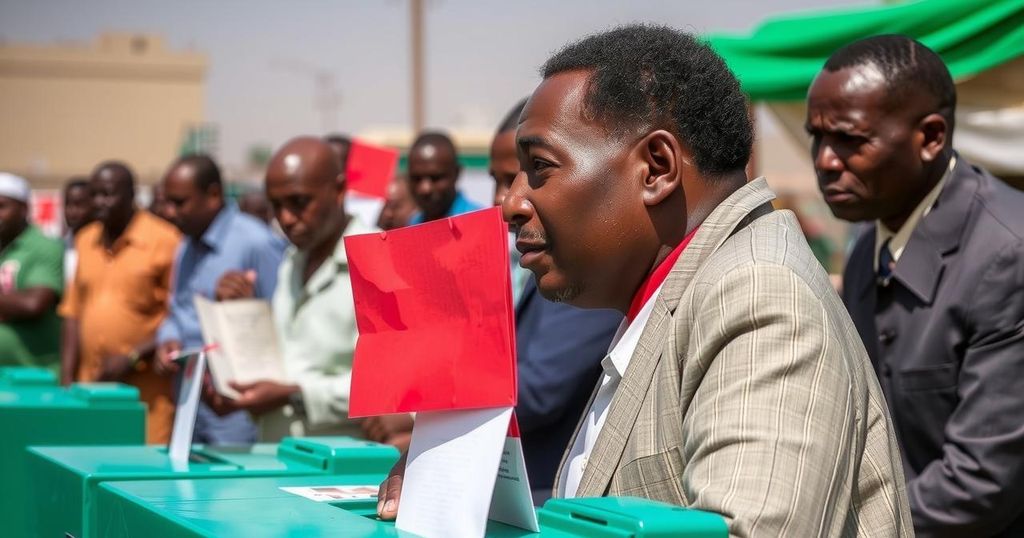World news
AFRICA, AHMAT MAHAMAT HASSAN, ASSEMBLY, BOKO HARAM, CHAD, CORRUPTION, DEBY, DEMOCRACY, EUROPE, FRANCE, GOVERNANCE, MAHA, MAHAMAT IDRISS DEBY ITNO, MOROCCO, N ' DJAMENA, NATIONAL ASSEMBLY, OPPOSITION, POLITICS, SAHEL, SUCCES MASRA, SUDAN, TRANSFORMERS, UNIVERSITY, UNIVERSITY OF N ' DJAMENA
Amira Khan
0 Comments
Chad Conducts Controversial Elections Amid Boycott and Turbulence
Chad is holding legislative and local elections amid a boycott from opposition parties. President Mahamat Idriss Deby Itno claims the elections are vital for democratic transition, while the opposition criticizes the process as fraudulent and oppressive. The political landscape is turbulent due to threats from jihadist groups and media restrictions, reflecting a climate of unrest and calls for legitimate governance.
Chad is conducting legislative and local elections on Sunday, characterized by a boycott from opposition parties who regard the process as a mere façade. The government, led by President Mahamat Idriss Deby Itno, portrays the elections as a pivotal stride towards democratic transition, despite persistent jihadist threats and ongoing turmoil in nearby Sudan. Following his ascension to power in 2021 after the death of his father, former President Idriss Deby Itno, Mahamat Deby secured a five-year mandate that the opposition condemned as fraudulent. The elections aim to revitalize the National Assembly and local legislatures for the first time since 2011, but opposition leaders assert that participating under current conditions equates to endorsing a system of legislative apartheid. The political climate is overshadowed by state-imposed media restrictions, with journalists striking in protest, and considerable public unrest against a regime perceived as autocratic, prompting calls for legitimate representation.
Chad has a history of autocratic governance, with Idriss Deby Itno ruling the country for three decades before his death in 2021. His son, Mahamat Deby, assumed power amidst a transitional military rule, with recent elections seen as crucial for establishing a semblance of democratic governance. This context is further complicated by the activities of jihadist groups, notably Boko Haram, which threaten security in the Lake Chad region. Additionally, social and economic challenges have been exacerbated by environmental disasters, such as recent severe flooding that displaced two million individuals.
In conclusion, the electoral process in Chad is marred by opposition boycotts and significant political dissent, reflecting a widespread perception of illegitimacy of the regime led by Mahamat Deby. As the government pushes for a return to a constitutional parliamentary framework, the response from opposition leaders and ongoing unrest underscored the complexities surrounding governance and civil rights in Chadian society.
Original Source: www.barrons.com




Post Comment